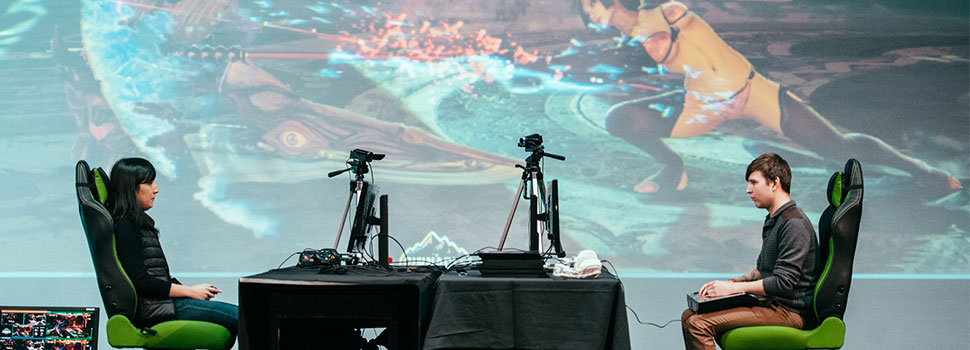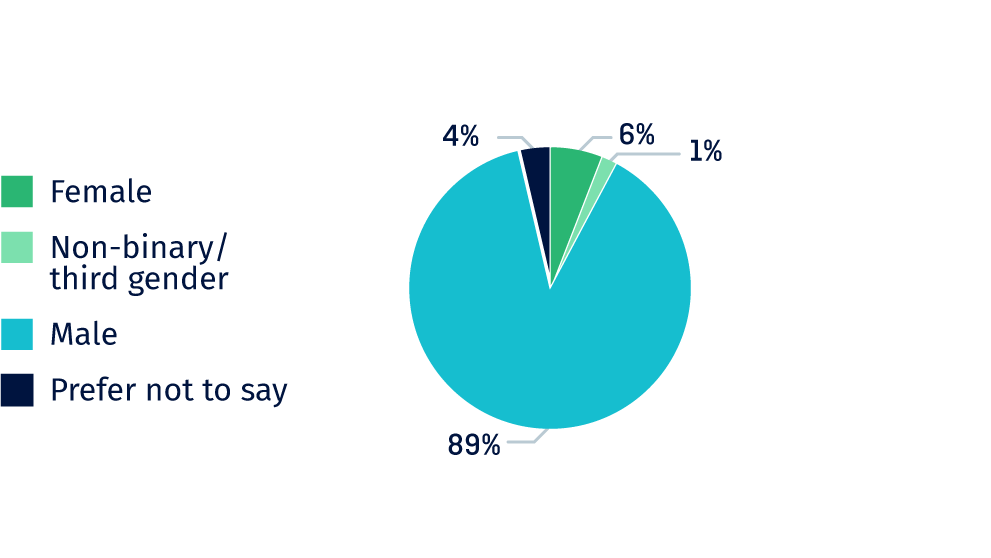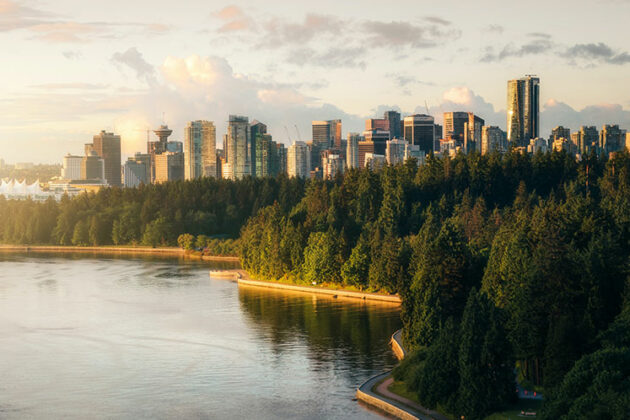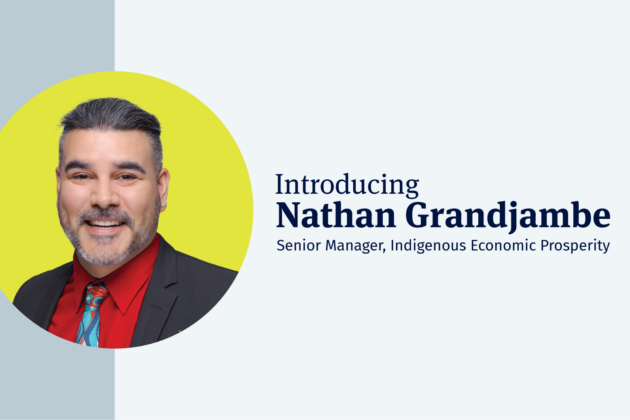First, a definition: esports is competitive video gaming.
But there’s a lot more to it than casually playing some Fortnite. It’s an explosive billion-dollar industry – and if we’re going to elevate esports in Vancouver, we have to strike while the iron is sizzling.
Whether low-stakes games with your friends, or professional league tournaments watched by millions of fans, esports is sports like you’ve never seen it. But it’s not just sports – it’s also a direct descendant of the $152 billion global video game market. And if you think esports bridges these industries, think again. Instead, it’s a standalone sector projected to double in value to $2.17 billion (USD) by 2023.
Over the past decade, esports has slipped into the mainstream. Today, traditional sports broadcasting channels run esports programming. Sports teams and associations – including the National Basketball Association (NBA) and Major League Soccer (MLS) – host their own esports events. And in 2016, more people watched the League of Legends World Championship (43 million viewers) than the Olympics (27 million viewers). But not all games translate to esports. They need to have competitive elements and a strong fan base, and also produce compelling content and cultivate a loyal community.
So, esports is many things, and also a standalone entity. And, with the global pandemic forcing the global population to seek at-home entertainment, it’s become even more popular over the past 15 months.
Vancouver’s esports scene
In 2020, Canada’s first esports stadium opened in Richmond (part of Metro Vancouver), catapulting the city into the hearts of gamers everywhere. Alongside the state-of-the-art Gaming Stadium, there’s Adamas, an esports training facility in Burnaby (think athlete training camp with PS4 Pros and Xbox Ones); and The Home Key, an esports training and workspace centre that supports emerging gamers’ career development. In 2018, Vancouver hosted the International DOTA 2 Championship – the biggest esports tournament in the world – with thousands of fans paying up to $280 per ticket, and a million more tuning in online. And then there’s the Vancouver Titans, an Overwatch League team backed by the Aquilini Group, which also owns the Vancouver Canucks National Hockey League team.
There’s also BC PavCo and Destination Vancouver, which have united with various partners – including the SFU Esports Association and UBC Esports Association – to host major esports events like MechCon (a MechWarrior and BattleTech convention) and LTX, a gaming and technology expo. And this fall, Pinnacle’s live esports event will mark a triumphant return to in-person gaming, with more than 2,000 people expected to attend the three-day event hosted at the Vancouver Convention Centre.

Photos: The Gaming Stadium
It’s not surprising esports has taken hold in Vancouver. The city already has one of the top video game clusters in the world, so it’s only natural the industry comes full circle with gaming competitions and dedicated facilities to groom the next generation of esports players.
Esports around the world
But it’s not just Vancouver that sees the potential in esports. Cities everywhere are jumping into the arena in a hectic battle royale to attract esports events and invest in industry development. North America, Asia and Western Europe account for 90 percent of overall revenues, though half of the global esports fan base is centred in Asia.
Major esports hotspots include:
The United States | Canada’s southern neighbour is home to some of the world’s most recognized esports game developers. These developers have also founded massive esports competitions and tournaments, including Riot Games’ League of Legends (LoL) world championships, which has been hosted three times in Los Angeles. Valve Corporation hosted The International tournament series for its Dota 2 title in Seattle for five consecutive years. However, in recent years many of these events have moved to China, which is eagerly developing its own esports industry.
China | The Chinese government offers several supports for esports, including subsidies for esports organizations, companies, venues, streaming platforms, clubs and events. There are also policies to formalize esports in the country, which have fostered investor confidence and raised public awareness. Private capital from esports companies has supplemented these government investments. For example, the NetEase Esports Park in Shanghai has helped to position the city as the esports capital of China, with more than half the world’s most successful esports teams residing there.
South Korea | Seoul is headquarters of OGN, a cable channel that has televised and organized esports tournaments for years. The Korean Sport & Olympic Committee also recognizes esports as a professional sport, largely due to the influence of the Korean Esports Association, which has helped to create a framework for esports development. It’s no wonder the city is widely known as the global centre for esports games.
Europe | Following the success in esports seen in China and South Korea, regions of Europe are likewise establishing esports associations and competing for the attention of esports companies and players. Cities like Berlin, Paris, London and Stockholm are leading the development of the esports industry throughout the continent, including opening international offices of major game publishers and tournament-winning esports teams.
Who’s playing esports?
In BC, most of the esports community is under the age of 30, with high school and college/university age brackets comprising the biggest segments. According to a survey by the Vancouver Economic Commission, 89 percent of the community identify as male, while 43% consider themselves heavy gamers (i.e. gaming for more than 35 hours per week).
Surveyed grassroots communities by gender

Source(s): Vancouver Economic Commission, Vancouver Esports Strategy
BC esports communities by hours of weekly gameplay

Source(s): Vancouver Economic Commission, Vancouver Esports Strategy
It’s important to note the gender imbalance in esports, which is explored in detail in VEC’s Esports Strategy. Wth more than three-quarters of esports enthusiasts identifying as male, only six percent identify as female, just over one percent identify as being a third or non-binary gender, and nearly four percent preferred not to disclose their gender in the report survey. Respondents who identified as female, Indigenous, of African descent or LGBTQ+ said their esports communities were generally inclusive. However, non-binary gamers and gamers with disabilities reported feeling less welcome in the esports community. As the industry evolves, so too does the need for esports to consider gender equity and make efforts to ensure all gamers are welcome and included.
Among all respondents, most preferred fighting games (e.g. Super Smash Bros. and Street Fighter), first-person shooter games (FPS, e.g. Call of Duty and Overwatch) and multiplayer online battle arenas (MOBA, e.g. League of Legends and Dota 2).
Where do we go from here?
Esports is an emerging industry in BC, and Vancouver is ideally positioned as a hub to develop the industry across Western Canada. We already have innovative esports companies, offices of top game developers, and notable key personalities and business leaders. We also have tournament planning experience, and the required physical and digital infrastructure to host major esports events.
However, Vancouver and BC need to improve in several areas to evolve into a key global esports hub:
- Additional infrastructure investments in remote communities, so people living in rural areas can participate in esports (and the digital economy).
- More educational programs offered by local universities, colleges and schools, and support for local companies to establish academies and venues for local esports events, with the goal of grooming a new generation of gamers.
- Establish an esports association uniting government representatives and esports companies, patterned after the associations in already established esports hub cities.
- Introduce policies that formalize esports (e.g. recognize esports as a competitive sport) and support development of the industry.
With these foundations in place, Vancouver and BC will be well positioned to attract international esports stakeholders and companies. But, before winning in the arena, we need to ensure our strategies are established and our players ready for action.
To learn more about esports in Vancouver, read the Vancouver Economic Commission’s Vancouver Esports Strategy and this blog post outlining the city’s esports ambitions.

[Download] Vancouver Esports Strategy
The value of the global esports market is on track to double from US$1.1 billion in 2019 to US$2.2 billion within the next few years
VEC worked alongside industry to assess key opportunities and challenges in Vancouver and BC’s esports ecosystem.
This report includes an overview of the global and local esports industry, including a summary analysis of leading hubs acting on esports initiatives and strategies.



